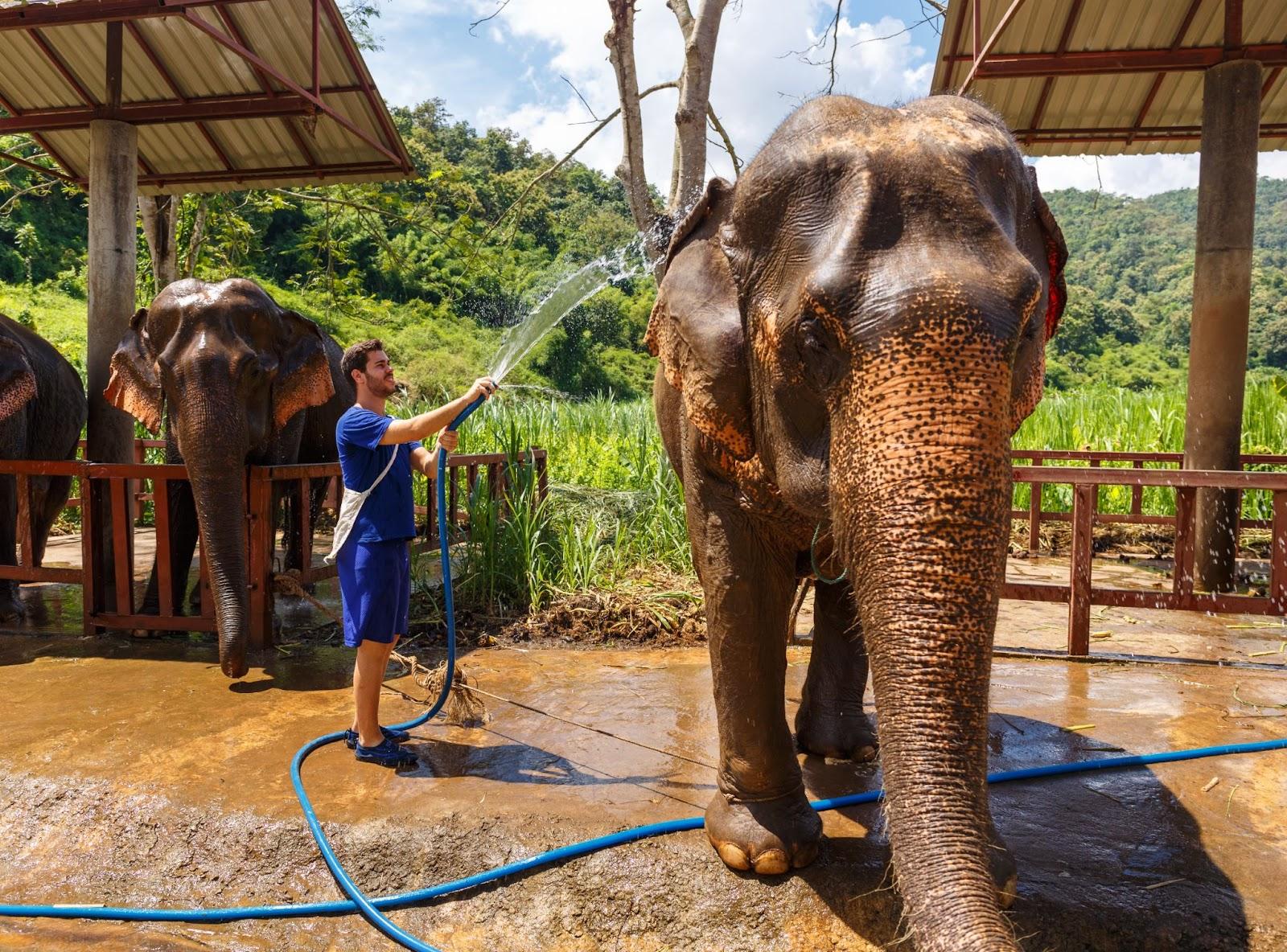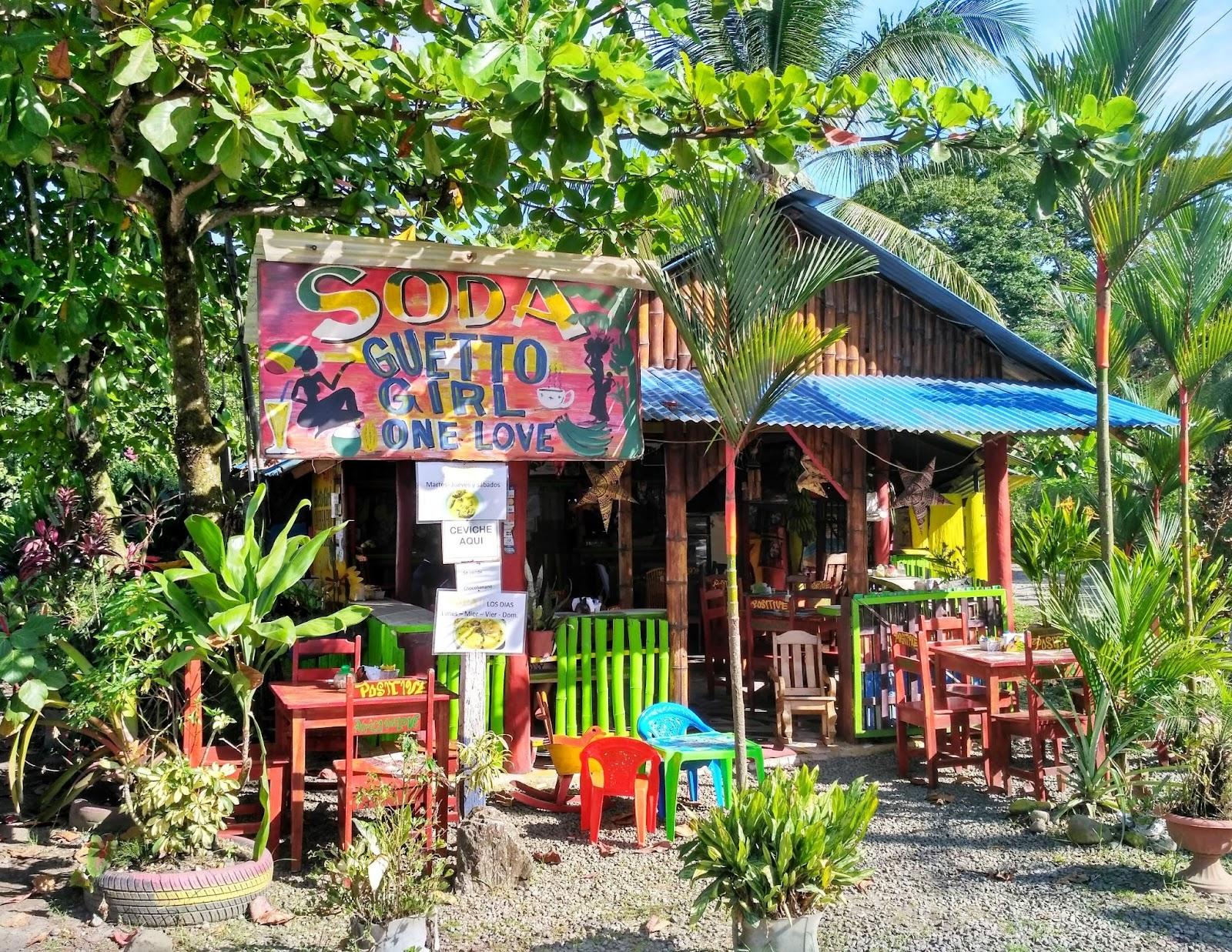
Sustainable travel: A guide for the conscious explorer
Welcome to the world of sustainable travel. A journey that takes you to beautiful destinations and contributes positively to our planet.
We live in an era where our travel choices can leave lasting footprints. It’s more important than ever to tread lightly and responsibly. Sustainable travel is not just a trend. It’s a necessity, reshaping the way we explore and connect with the world around us.
As a committed bureau de change, we understand that every journey begins with a step, and every step counts. In this guide, we will explore sustainable travel, why it matters, and how you can make your adventures more eco-friendly and culturally sensitive.
From practical tips to inspiring destinations, we’re here to help you embark on travels that are not only memorable but also meaningful. Let’s begin this journey towards a more sustainable and responsible way of exploring our beautiful world.
What is sustainable travel?
Sustainable travel is about making choices that are respectful to the environment, beneficial to local communities, and culturally sensitive. It’s exploring the world and leaving minimal negative impact on the destinations we visit.
Get travel money fast
Why is sustainable travel important?
Sustainable travel is vital as it minimises environmental impact, preserves natural and cultural heritage, and supports local economies. Promoting responsible tourism ensures destinations remain vibrant and accessible for future generations.
This approach leads to more meaningful travel experiences, fostering global awareness and respect for different cultures and environments.
Essentially, sustainable travel helps balance the joys of exploring the world with the responsibility of conserving it for tomorrow.
This approach to travel involves three key components: economic, social and environmental.

Economic sustainability
Sustainable travel means supporting the local economy of the places we visit. You can achieve this by:
- Shopping locally and buying locally sourced products.
- Staying in locally-owned hotels,
- Or dining at restaurants that source their ingredients from local suppliers.
By doing so, you can ensure that your money is directly benefiting the community, contributing to its economic well-being.
Social and cultural sustainability
This aspect focuses on respecting and preserving travel destinations’ cultural heritage and social structures. It involves:
- Respectfully engaging with local cultures,
- Understanding local customs,
- And not participating in activities that exploit or disrespect local communities.
Environmental sustainability
This is about reducing the environmental impact of your travels. It means:
- Favouring environmentally friendly transport options that minimise greenhouse gas emissions,
- Choosing eco-conscious accommodations,
- And engaging in activities that don’t harm the local ecosystem or protect the environment and natural resources.
It’s about being mindful of your carbon footprint and doing your part to protect natural landscapes and wildlife.
Incorporating these elements into your travel plans helps you become a responsible traveller. By choosing sustainable travel, you enrich your travel experiences and contribute positively to the places and people you visit.

How can I make my travel sustainable?
Embarking on a sustainable journey requires mindful planning and a commitment to making eco-friendly choices. Here are some practical tips to help you travel sustainably:
- Choose eco-friendly accommodation
Look for hotels or lodgings that have a proven commitment to sustainability. These might include using renewable energy sources, recycling programs, and measures to conserve water.
Many hotels now boast green certifications; opting for these can significantly reduce your environmental footprint.
- Support local businesses
One of the best ways to travel sustainably is to support the local economy. Choose local eateries, shop at local markets, and use local guides. This provides a more authentic experience and helps distribute tourism dollars more evenly.
- Minimise air travel when possible
Air travel contributes significantly to carbon emissions. Whenever possible, opt for alternative modes of transportation like trains or buses.
If flying is unavoidable, consider direct flights, as they generally have a lower carbon footprint than connecting flights.
- Pack light
The heavier your luggage, the more fuel is required to transport it. Packing light makes travel easier and reduces carbon emissions, particularly on flights.
- Practice responsible tourism
Be mindful of the environment and local cultures wherever you go. This includes respecting wildlife, not littering, and adhering to local customs and guidelines.
- Offset your carbon footprint
Consider offsetting the carbon emissions from your travel by investing in carbon offset programs. These programs fund renewable energy, tree planting, and other projects that counteract carbon emissions.
- Educate yourself and others
Stay informed about the best practices for sustainable travel and share your knowledge with fellow travellers. Spreading awareness is a powerful tool in making sustainable travel the norm.
Following these tips ensures that your travel adventures positively impact the planet and its inhabitants. Every small step towards sustainable travel is a step towards a healthier, more balanced world.

Financial planning for sustainable travel
Sustainable travel is not just about making environmentally conscious choices. It’s also about planning and managing your finances wisely to support these choices. Here’s how you can financially plan for a sustainable trip:
Budgeting for sustainability
Often, eco-friendly options might have a higher price tag due to their commitment to quality and sustainability. It’s important to factor these costs into your travel budget. Consider allocating funds for eco-friendly accommodations, local tours, and sustainable activities.
Using a bureau de change wisely
Currency exchange rates can significantly impact your travel budget. At Manor FX, we recommend monitoring exchange rates and planning your currency exchange with us in advance. This not only helps you get the best rates but also aids in better budgeting for your trip.
Investing in sustainable travel Insurance
Opt for travel insurance policies that offer coverage for eco-friendly travel aspects. Some insurance providers offer special packages for travellers engaging in sustainable tourism. Check out Naturesave, World Nomads and Evergreen Insurance Services.
Supporting local economies
Allocate a portion of your budget to support local artisans, farmers, and small businesses. This enhances your travel experience and contributes to the economic sustainability of the places you visit.
Eco-friendly travel rewards and incentives
Look for travel rewards programs that incentivise sustainable travel choices. Some credit cards (such as Future Card) and travel companies offer points or rewards for booking with eco-friendly hotels or using lower-emission transportation.
Planning for off-season travel
Travelling during the off-season can be more sustainable and cost-effective. It helps reduce over-tourism and often leads to lower prices for flights and accommodations.

Sustainable destinations
Choosing the right destination is crucial in sustainable travel. Some places are famous for their commitment to sustainability, offering experiences that are both enriching and environmentally responsible. Here are a few destinations that stand out for their sustainable practices:
Costa Rica
A pioneer in eco-tourism, Costa Rica offers lush rainforests, abundant wildlife, and a commitment to renewable energy. It’s a haven for nature lovers and those passionate about conservation. Secure the best rates for your Costa Rican colon with Manor FX.
Norway
Known for its stunning fjords, Norway is also a leader in sustainable living. The country’s focus on preserving its natural beauty while promoting eco-friendly tourism makes it a top destination for sustainable travellers. Get your Norwegian krone delivered to your door – hassle-free!
New Zealand
With its breathtaking landscapes and strong environmental protection policies, New Zealand offers a perfect mix of adventure and sustainability. It’s a country that actively works towards balancing tourism with nature conservation.
Need New Zealand dollars for your trip? We’ve got you covered! Get free delivery when you spend over £750.
Slovenia
Often underrated, Slovenia is a hidden gem in Europe, offering beautiful alpine scenery and a commitment to green tourism. Ljubljana, its capital, was named the European Green Capital in 2016. Prepare for your trip and buy your euros in advance with Manor FX.
Bhutan
This Himalayan kingdom measures its success through Gross National Happiness, balancing economic development with environmental preservation. Bhutan’s approach to tourism, focusing on sustainability and cultural preservation, makes it a unique and enlightening destination. We’ll soon stock the Bhutanese ngultrum.
Iceland
With its use of geothermal energy and efforts to preserve its unique landscapes, Iceland is another excellent choice for sustainable travel. The country’s initiatives to reduce tourism’s environmental impact are commendable. Secure your Icelandic Krona with Manor FX today.
Get travel money fast

Sustainable travel trends
Sustainable travel is continually evolving. New trends emerge as travellers become more conscious of their impact on the planet. Here are some of the latest trends in sustainable travel:
Slow travel
This trend emphasises the idea of spending more time in fewer places. The aim is to reduce carbon emissions and immerse more deeply in local cultures.
Slow travel often involves staying in one destination longer and exploring it more thoroughly rather than hopping quickly from one place to another.
Eco-tourism
Eco-tourism is a growing trend focusing on responsible travel to natural areas, conserving the environment, and improving the well-being of local people.
It combines exploration with conservation, offering travellers unique experiences in pristine settings while promoting sustainable practices and cultural respect. Eco-tourism encourages a deeper connection with nature and a commitment to preserving it.
Voluntourism
Combining volunteering with tourism, this trend involves participating in voluntary work, often in community projects or wildlife conservation efforts. It’s a way to give back to the communities visited and make a positive impact.
Digital detoxes
More travellers are choosing destinations that allow them to disconnect from digital devices and reconnect with nature. This trend is about finding balance and escaping the constant connectivity of modern life.
Responsible wildlife tourism
This involves interactions with wildlife that are ethical and respectful. Travellers are increasingly aware of tourism’s impact on wildlife and are choosing responsible and sustainable experiences.
Green city breaks
Urban destinations also embrace sustainability, offering eco-friendly accommodation, public transport options, and green spaces. City breaks can be sustainable, too, focusing on low-impact activities and supporting local businesses.
Train travel revival
With a lower carbon footprint than air travel, trains are regaining popularity. They offer a scenic and more sustainable way to travel, particularly in regions with efficient rail networks.
These trends offer unique and enriching experiences and contribute significantly to sustainable tourism’s global effort.
By embracing these trends, travellers can positively impact the environment and the communities they visit.

Our role in promoting sustainable travel
Here at Manor FX, we play a unique role in supporting and promoting sustainable travel. Our commitment goes beyond providing currency exchange services. We aim to be a part of your sustainable journey in several meaningful ways:
- Educating travellers. We believe in informing our customers about sustainable travel practices. Whether through our website, our travel guides, or in-person consultations, we provide tips and insights on how to travel responsibly.
- Supporting sustainable initiatives. We actively seek partnerships with sustainable travel organisations and eco-friendly businesses. We help promote sustainable tourism and offer our customers options that align with their values.
- Encouraging local currency use. Using local currency is beneficial for getting the best value and supports the local economy. We encourage our customers to exchange money for local currency and educate them on its benefits for sustainable travel.
We stock over 160 currencies, including many minor and exotic currencies. That’s a wider range of currencies than anywhere else! Our customers also benefit from fast, free, next-working-day delivery for orders over £750.
- Reducing our carbon footprint. As a business, we’re committed to reducing our carbon footprint. This includes using energy-efficient practices in our offices and promoting digital transactions to reduce paper use.
Our dedication to sustainable travel is an integral part of our business ethos. We are excited to assist and guide you in making travel choices that are memorable, responsible, and beneficial to our planet.

Takeaways
As we’ve explored throughout this guide, sustainable travel is more than just a way of exploring the world. It’s a commitment to protecting and cherishing it.
By choosing to travel sustainably, we enrich our lives whilst contributing positively to the communities and environments we visit. From understanding what sustainable travel entails to adopting practical tips and embracing current trends, we have the power to make a significant impact.
The role of sustainable travel in today’s world cannot be overstated. It’s about making conscious choices that balance our desire to explore with our responsibility to the planet.
By opting for eco-friendly accommodations, supporting local economies, and respecting cultural heritage, we pave the way for a more sustainable and inclusive future in travel.
Remember that we’re here to help when planning your next sustainable adventure. Our bureau de change offers excellent currency exchange rates, advice, and support for eco-friendly travel plans. Let us be a part of your journey towards positively impacting the world through travel.
Connect with us through our website or visit us in person for all your travel currency needs. Together, we can make travel a force for good, one trip at a time.
FAQs
Yes, people do care about sustainable travel. Recent studies and surveys indicate a growing interest in sustainable travel among the global population:
- The 2023 sustainable travel report. According to this report, which gathered responses from over 33,000 travellers worldwide, a significant majority (76%) expressed a desire to travel more sustainably in the next 12 months. This shows a strong inclination towards sustainable travel practices among many travellers.
- Statista report on sustainable tourism. Statista’s report reveals that 81% of travellers worldwide believe sustainable travel is important. This high percentage indicates a widespread recognition of the importance of sustainable tourism practices among travellers globally.
- Booking.com’s sustainability research. Booking.com’s research on sustainability in 2023 found that 74% of travellers believe it is necessary to act now and make more sustainable choices to save the planet for future generations. This indicates travellers’ strong awareness and willingness to adopt sustainable travel practices.
These statistics demonstrate a clear trend. Many travellers are aware and concerned about the impact of their travel choices on the environment and local communities. They are increasingly seeking sustainable options and believe in the importance of such practices for the health of the planet in the long term.
- Walking. Walking is the most sustainable way to travel. It produces no emissions, requires no fuel, and has minimal environmental impact. It’s ideal for short distances and is beneficial for health and well-being.
- Cycling. Like walking, cycling is highly sustainable. It’s efficient for slightly longer distances and has a negligible carbon footprint. Bicycles don’t emit pollutants; manufacturing them requires fewer resources than motorised vehicles.
- Public transport: Public transportation (like buses and trains) is more sustainable than private vehicles for longer distances. They carry more people at once, reducing the per-person carbon emissions. Trains are among the most sustainable motorised transport methods, especially electricity-powered ones.
- Electric vehicles. Electric vehicles (EVs) are a more sustainable option for road trips than conventional petrol or diesel cars. They have lower carbon emissions, especially when charged with renewable energy.
- Sailing. If considering travel over water, sailing (without using a motor) is extremely sustainable. It relies on wind power and has minimal impact on the environment.
- Eco-conscious air travel. While air travel is generally less sustainable, choosing airlines that commit to sustainability can be a relatively more sustainable option when flying is necessary.
That depends on several factors, including the distance of the journey, the type of vehicle or aircraft, the number of passengers, and the efficiency of the vehicle.
- Short distances. Driving, especially in a fuel-efficient or electric vehicle, is often more sustainable than flying for shorter distances. Air travel is less efficient over short distances due to the large amount of fuel used during takeoff and landing.
- Long distances. For long distances, the sustainability comparison becomes more complex. Modern aeroplanes, especially on long-haul flights, can be more fuel-efficient per passenger mile than cars. Especially if the car is only carrying one or two people.
- Vehicle type and occupancy. The sustainability of driving depends on the type of vehicle and the number of passengers.
A fuel-efficient or electric vehicle fully occupied by passengers is often more sustainable than flying. Particularly for shorter trips.
However, a single person driving a less efficient car might find flying more sustainable, especially for longer distances. - Airplane efficiency. The sustainability of flying can vary based on the aircraft type and occupancy. Newer planes tend to be more fuel-efficient. Flights that are near full capacity tend to have lower per-passenger emissions.
- Carbon emissions. Air travel generally produces higher carbon emissions per passenger mile than driving, especially for shorter trips. This is due to the high levels of energy required for takeoffs and the emissions being released at higher altitudes, which can significantly impact climate change.